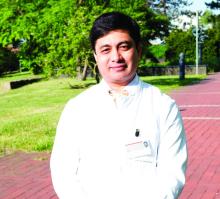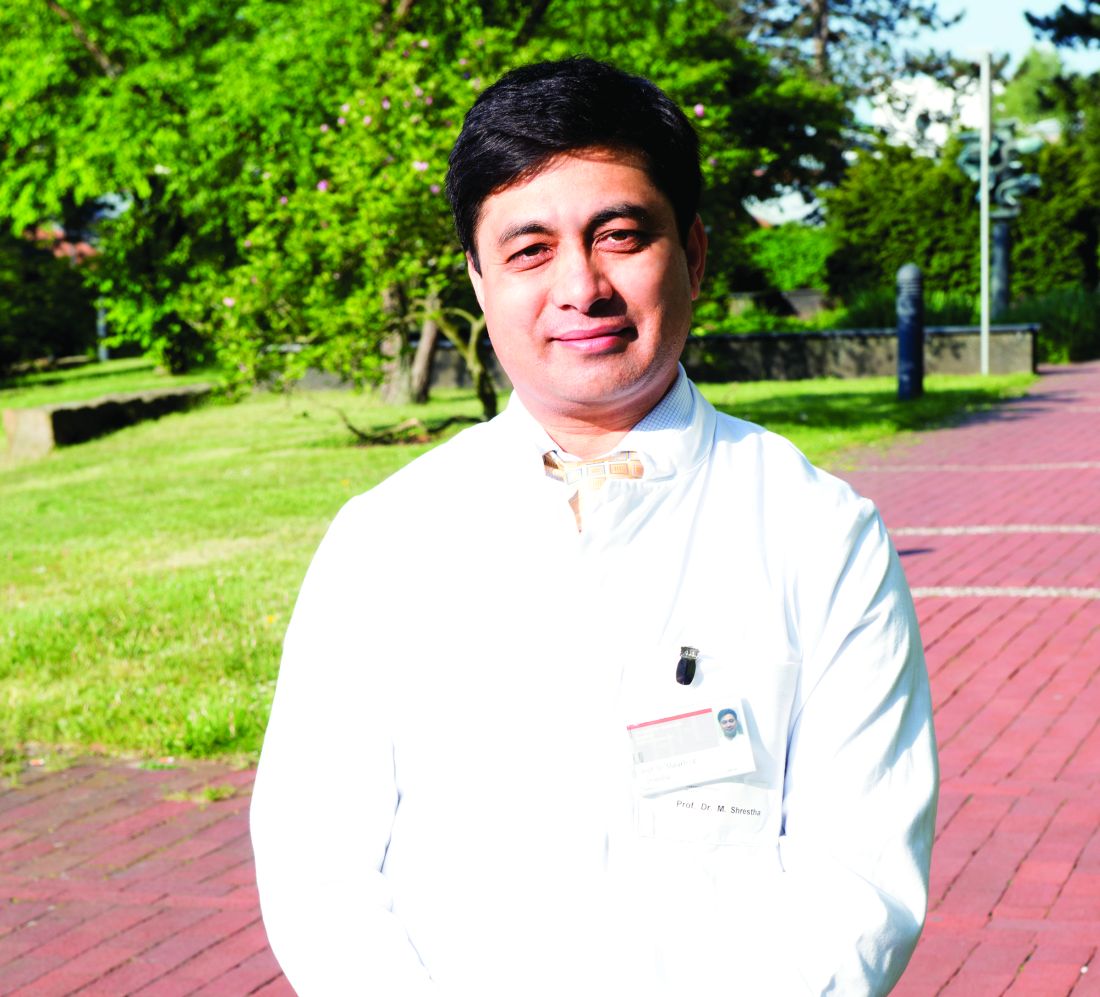User login
The challenge of finding a satisfying balance between work life and personal life is topic that interests many medical professional, thoracic surgeons in particular. A Sunday AATS CT Theater event will be focus on these issues.
“Ideally, the session would be called ‘Work-Life Balance,’” explained, of the Hannover Medical School in Hannover, Germany.
“At this session, we want to hear from young people,” said Dr. Shrestha. “In the past, we’ve heard from more senior members, who often don’t see this as such a big issue [but] at this session we will hear exclusively from younger members.”
Discussions will center on how the field of cardiothoracic surgery can attract the best and brightest young minds coming out of medical schools around the world. One talk will be given by a resident based in the United States; married to a general surgeon and a new mother of twins, the resident will talk about the importance of allowing surgeons enough leeway in their workloads to tend to domestic matters. Such an approach makes for happier surgeons and, ultimately, better care for patients. Another resident from Germany will shed light on the work-life balance approaches of European surgeons, and both the similarities and differences between the U.S. and Europe in this regard.
In addition, “there will be a panel of senior members, [consisting of] the president and general secretary of the AATS, and the president and general secretary of the European Association,” said Dr. Shrestha. “They can not only comment, but they should also give their views as to how they think we can change our system.”
Dr. Shrestha hopes these discussion will offer young surgeons the advice they need to better their own self-care and their lives. Dr. Shrestha also added that the session will address the growing issue of burnout among surgical residents, with conversations about the best way to move forward in addressing that issue. Working hours have dropped from what they were in previous decades, with surgeons often working as much as 100 hours a week and barely spending time at home. That kind of schedule is no longer the expectation, but surgeons still have to struggle to maintain a home life, self-care, and rest in the context of their daily work. Dr. Shrestha hopes that this session will be an important step in making those goals a reality for future generations of cardiothoracic surgeons.
“We need to attract the best possible talent in this field, regardless of where they’re from or if they’re men or women,” said Dr. Shrestha. “Improving work-life balance is one of the best ways to do that.”
The challenge of finding a satisfying balance between work life and personal life is topic that interests many medical professional, thoracic surgeons in particular. A Sunday AATS CT Theater event will be focus on these issues.
“Ideally, the session would be called ‘Work-Life Balance,’” explained, of the Hannover Medical School in Hannover, Germany.
“At this session, we want to hear from young people,” said Dr. Shrestha. “In the past, we’ve heard from more senior members, who often don’t see this as such a big issue [but] at this session we will hear exclusively from younger members.”
Discussions will center on how the field of cardiothoracic surgery can attract the best and brightest young minds coming out of medical schools around the world. One talk will be given by a resident based in the United States; married to a general surgeon and a new mother of twins, the resident will talk about the importance of allowing surgeons enough leeway in their workloads to tend to domestic matters. Such an approach makes for happier surgeons and, ultimately, better care for patients. Another resident from Germany will shed light on the work-life balance approaches of European surgeons, and both the similarities and differences between the U.S. and Europe in this regard.
In addition, “there will be a panel of senior members, [consisting of] the president and general secretary of the AATS, and the president and general secretary of the European Association,” said Dr. Shrestha. “They can not only comment, but they should also give their views as to how they think we can change our system.”
Dr. Shrestha hopes these discussion will offer young surgeons the advice they need to better their own self-care and their lives. Dr. Shrestha also added that the session will address the growing issue of burnout among surgical residents, with conversations about the best way to move forward in addressing that issue. Working hours have dropped from what they were in previous decades, with surgeons often working as much as 100 hours a week and barely spending time at home. That kind of schedule is no longer the expectation, but surgeons still have to struggle to maintain a home life, self-care, and rest in the context of their daily work. Dr. Shrestha hopes that this session will be an important step in making those goals a reality for future generations of cardiothoracic surgeons.
“We need to attract the best possible talent in this field, regardless of where they’re from or if they’re men or women,” said Dr. Shrestha. “Improving work-life balance is one of the best ways to do that.”
The challenge of finding a satisfying balance between work life and personal life is topic that interests many medical professional, thoracic surgeons in particular. A Sunday AATS CT Theater event will be focus on these issues.
“Ideally, the session would be called ‘Work-Life Balance,’” explained, of the Hannover Medical School in Hannover, Germany.
“At this session, we want to hear from young people,” said Dr. Shrestha. “In the past, we’ve heard from more senior members, who often don’t see this as such a big issue [but] at this session we will hear exclusively from younger members.”
Discussions will center on how the field of cardiothoracic surgery can attract the best and brightest young minds coming out of medical schools around the world. One talk will be given by a resident based in the United States; married to a general surgeon and a new mother of twins, the resident will talk about the importance of allowing surgeons enough leeway in their workloads to tend to domestic matters. Such an approach makes for happier surgeons and, ultimately, better care for patients. Another resident from Germany will shed light on the work-life balance approaches of European surgeons, and both the similarities and differences between the U.S. and Europe in this regard.
In addition, “there will be a panel of senior members, [consisting of] the president and general secretary of the AATS, and the president and general secretary of the European Association,” said Dr. Shrestha. “They can not only comment, but they should also give their views as to how they think we can change our system.”
Dr. Shrestha hopes these discussion will offer young surgeons the advice they need to better their own self-care and their lives. Dr. Shrestha also added that the session will address the growing issue of burnout among surgical residents, with conversations about the best way to move forward in addressing that issue. Working hours have dropped from what they were in previous decades, with surgeons often working as much as 100 hours a week and barely spending time at home. That kind of schedule is no longer the expectation, but surgeons still have to struggle to maintain a home life, self-care, and rest in the context of their daily work. Dr. Shrestha hopes that this session will be an important step in making those goals a reality for future generations of cardiothoracic surgeons.
“We need to attract the best possible talent in this field, regardless of where they’re from or if they’re men or women,” said Dr. Shrestha. “Improving work-life balance is one of the best ways to do that.”

